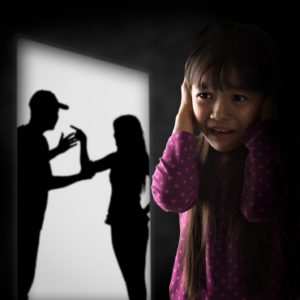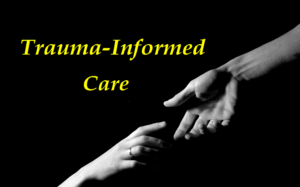 Tyler is only nine years old, but his parents are at the ends of their ropes! Neighbors hear his temper tantrums daily, even when the windows are closed. He goes out of his way to annoy his sisters, and bullies his cousins; they are afraid to complain because they fear his revenge. He lies and steals without remorse. He is disrespectful to his parents, and seems to love to argue. The other day, for example, he claimed that he had no homework, though his mother knew he did. After an hour, the exhausted woman threw up her hands and said “OK. Fine. You don’t have homework.” Just before bedtime, he told her “I need help with my math!” His mother is overwhelmed, and ready to tear her hair out.
Tyler is only nine years old, but his parents are at the ends of their ropes! Neighbors hear his temper tantrums daily, even when the windows are closed. He goes out of his way to annoy his sisters, and bullies his cousins; they are afraid to complain because they fear his revenge. He lies and steals without remorse. He is disrespectful to his parents, and seems to love to argue. The other day, for example, he claimed that he had no homework, though his mother knew he did. After an hour, the exhausted woman threw up her hands and said “OK. Fine. You don’t have homework.” Just before bedtime, he told her “I need help with my math!” His mother is overwhelmed, and ready to tear her hair out.
Sound familiar? Tyler has what therapists call “Oppositional Defiant Disorder.” These children always seem angry and just can’t stop arguing. Frustratingly though, they behave this way more at home with their parents than in other settings. Other adults may see a completely different child!
But there is help!
Father Edward Flanagan, founder of Boys Town, famously said “there’s no such thing as a bad boy.” Flanagan was strongly opposed to the punitive measures – including reform schools and jailing children with adults – widely used in the early years of the 20th century. He said, “a boy given the proper guidance and direction — kept busy and constructively occupied during their leisure or free time — will prove my statement that there is no such thing as a bad boy.” His overwhelmingly successful approach has been adopted all over the world!
 Though he was criticized as a “bleeding heart,” modern psychology has finally started to catch up with Fr. Flanagan’s ideas. He believed that “rehabilitation needs greater emphasis, punishment less.” In recent decades, experts have observed that almost all children – both boys and girls – with Oppositional Defiant Disorder (ODD), have experienced one or more traumatic events. These might include abuse, witnessing domestic violence or other violent crimes, substance abuse in the family, extended separations from parents, or divorce or separation.
Though he was criticized as a “bleeding heart,” modern psychology has finally started to catch up with Fr. Flanagan’s ideas. He believed that “rehabilitation needs greater emphasis, punishment less.” In recent decades, experts have observed that almost all children – both boys and girls – with Oppositional Defiant Disorder (ODD), have experienced one or more traumatic events. These might include abuse, witnessing domestic violence or other violent crimes, substance abuse in the family, extended separations from parents, or divorce or separation.
 Until recently, treatments for ODD were mostly punitive. Not surprisingly, these didn’t work for many families; especially in the long-run. We now understand that we must work with trauma and ODD together. To quote Father Flanagan one more time, “I do not believe that a child can be reformed by lock and key and bars, or that fear can ever develop a child’s character.”
Until recently, treatments for ODD were mostly punitive. Not surprisingly, these didn’t work for many families; especially in the long-run. We now understand that we must work with trauma and ODD together. To quote Father Flanagan one more time, “I do not believe that a child can be reformed by lock and key and bars, or that fear can ever develop a child’s character.”
There are no medications for Oppositional Defiant Disorder. Some children, though, suffer from “co-occurring disorders,” including ADHD or Depression, that might respond to medication. The first line treatment for uncomplicated Oppositional Defiant Disorder is contingency management. This means careful control of the child’s environment, including rewards and punishments, to encourage better behavior.
 Contingency management, though, is rarely enough. Every child with Oppositional Defiant Disorder should be carefully evaluated for trauma. Happily, several effective treatments have been developed to help children make sense of traumatic events, and put them in their proper place in their lives. These include:
Contingency management, though, is rarely enough. Every child with Oppositional Defiant Disorder should be carefully evaluated for trauma. Happily, several effective treatments have been developed to help children make sense of traumatic events, and put them in their proper place in their lives. These include:
- Trauma Focused Cognitive Behavior Therapy (TF-CBT) – A skills-based approach, in which both the traumatized child and the parents or caregivers learn to cope with their troubling thoughts and emotions, so they can come to “own” their own stories. Parents play an important role in this approach.
- EMDR – Similar to TF-CBT, in that the patient learns important coping skills first. This approach doesn’t involve the patient telling her story; instead, the two sides of the brain are stimulated so that traumatic memories can be successfully “processed” into long-term memory. The family doesn’t have a specific role in EMDR treatment.
- Dialectical Behavior Therapy (DBT) – yet another skills-based approach, designed for teens and adults who have more severe behavioral and emotional problems, including suicide attempts, self-harm, and substance-abuse issues. DBT involves skill-training groups, as well as individual and family therapy sessions.
Military school or “boot camps” might sound enticing, but they rarely deliver the promised long-term improvements. The key is finding a professional with the skills necessary to help parents get immediate control over their child’s behavior, while addressing the underlying causes. Ask questions. Ensure that the therapist has the necessary skills, and a specific plan for addressing your family’s needs. There is no quick fix, but you can help your child regain control.
 Originally published in the Winter, 2017 issue of the Health and Medical Resource Guide.
Originally published in the Winter, 2017 issue of the Health and Medical Resource Guide.